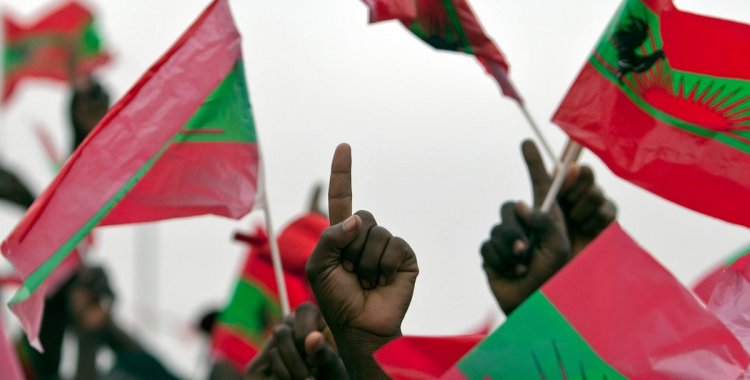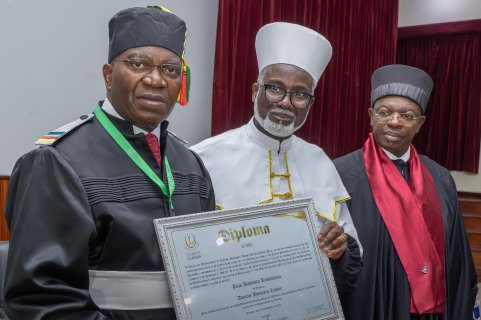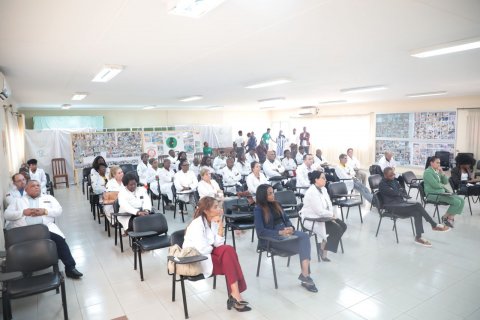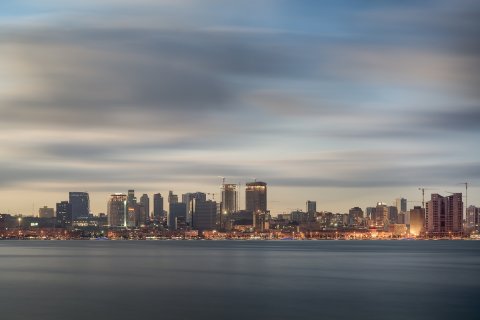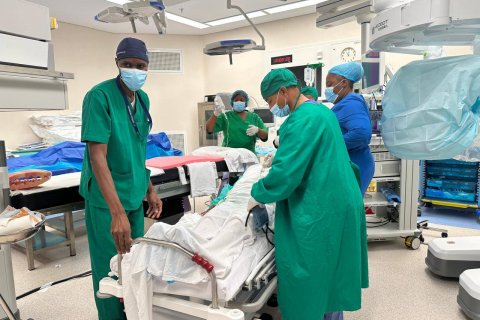For Sérgio Dundão, who was speaking to Lusa about the "uncertainty" of the inauguration of the 90 deputies of the National Union for the Total Independence of Angola (UNITA), elected on 24 August, the biggest impact would be the budgetary issue.
"If UNITA does not take office, they will no longer receive funding from the General State Budget [OGE] and it becomes very difficult for UNITA, which is a party and has financial commitments to maintain or preserve its party functioning", said Sérgio Dundão.
"Our law provides that the party that has parliamentary representation can receive the money from the OGE for five years", he stressed, noting that UNITA will not be able to take such a risk because "it also lives at the expense of public funding".
A second impact, he pointed out, "is that with the absence of UNITA deputies", the MPLA, declared the winner of the general elections, "will have the possibility of carrying out a constitutional revision", since the quorum "would be formed by the deputies in effective functions".
"Our revised Constitution does not define a quorum and refers only to deputies in effective functions, which is two-thirds of deputies in effective functions", underlined the specialist.
Sérgio Dundão, also a researcher in social policy areas, also mentioned that, in a third impact, UNITA would no longer nominate members for the ERCA (Angolan Media Regulatory Authority) for the CNE (National Electoral Commission) and for the Constitutional Court (TC).
"In other words, he could not indicate because he was not represented in the National Assembly and, in addition, UNITA members would not be in the Council of the Republic and would not necessarily have immunities either", he stressed.
"I don't believe that UNITA takes all these risks, so I'm in favor of them taking seats in parliament," he noted.
UNITA said this Monday that it is considering taking office in parliament, considering that its definitive position will aim at safeguarding peace and consolidating democracy, while other opposition parties are divided.
According to the UNITA spokesperson, the party evaluates all scenarios, not ruling out, however, the inauguration in parliament.
"We're talking about all these issues, about the various possible scenarios and it's a dichotomy between taking [ownership] or not. The discussion is around these two approaches and I think that only on Wednesday will we be able to come up with authority and say what we will do", said Marcial Dachala to Lusa.
Sérgio Dundão also considered that if the UNITA deputies do not take office, in an investiture ceremony scheduled for 16 September, "no resignation or penalty can be applied".
"Because technically what UNITA would do is not even carry out the mandate, it would not be resignation, but not assume the mandate, UNITA for example does not run any risk of being penalized or extinguished", he argued.
The specialist also recalled the Angolan Constitution, taking into account the period of 1992, the year in which Angola held the first elections, where, he stressed, the UNITA deputies did not accept the results and did not take office at the time.
"They, in that period, did not accept the electoral results and did not carry out a mandate, later on, with the agreements already in Lusaka, the renewed UNITA ended up taking office and this situation would not be unprecedented", he concluded.
Last week, the TC validated the final results of the August 24 general elections, released by the CNE, and dismissed the litigation appeals presented by UNITA and the Convergência Ampla de Salvação de Angola – Electoral Coalition (CASA-CE).
The TC proclaimed the Popular Movement for the Liberation of Angola (MPLA) and its candidate, João Lourenço, as winners with 51.17 percent of the votes, followed by UNITA, with 43.95 percent.
With these results, the MPLA elected 124 deputies and UNITA 90, almost twice as many as in 2017.
The PRS, the FNLA and the newcomer PHA each elect two deputies.
CASA-CE, the National Patriotic Alliance (APN) and P-Njango did not obtain seats in the National Assembly, which in the 2022-2027 legislature will have 220 deputies.
João Lourenço, re-elected President for the next five years, takes office on Thursday, followed by the elected deputies.

